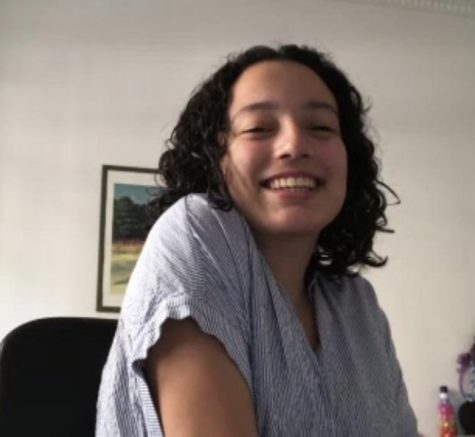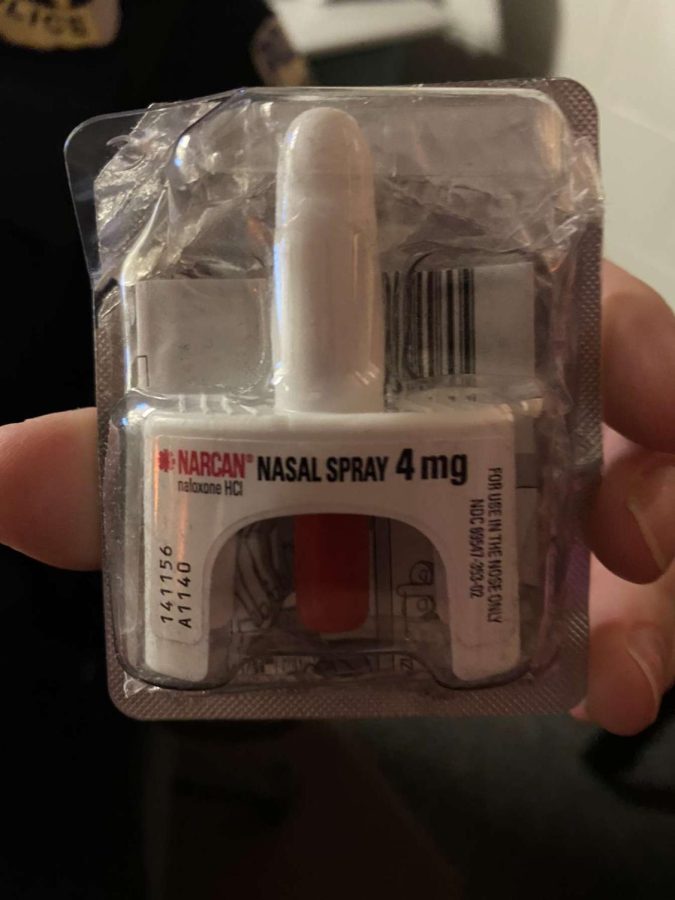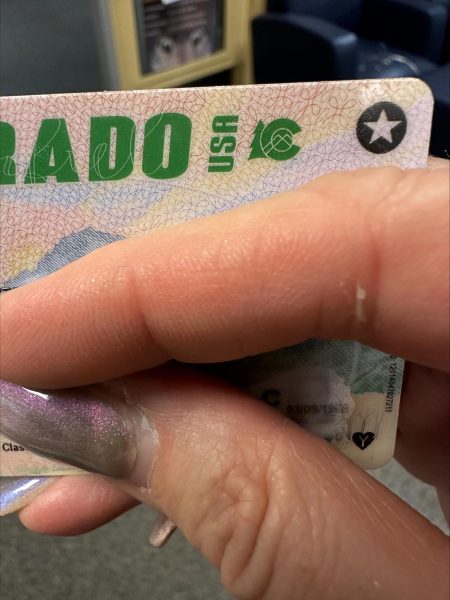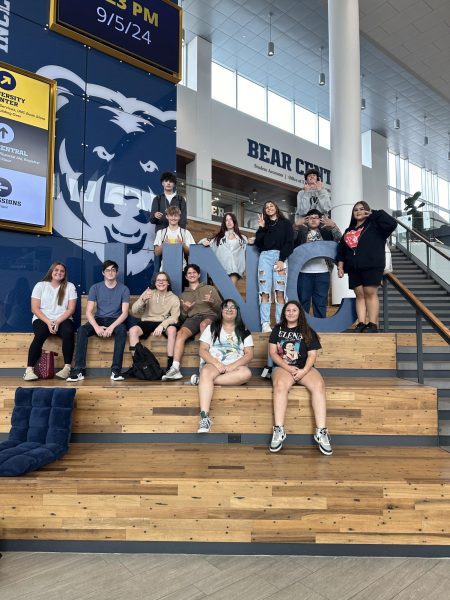Fentanyl Epidemic
A Narcan dose, held by officer Sarah Klich, who is authorized to administer it.
“Fentanyl is the single deadliest drug threat our nation has ever encountered,” according to the United States Drug Enforcement Administrator Anne Milgram. It is a synthetic opioid “50-100 times stronger than morphine.” Only two mg of fentanyl can be lethal. In 2021, the narcotic was identified in over 77% of adolescent overdoses.
According to Narcan.com, on average, a person dies from an opioid overdose approximately every eight minutes. The signs of overdose include stupor, changes in pupillary size, cold and clammy skin, cyanosis–blue discoloration of the skin, respiratory failure leading to death, and coma.
First created to be a medication for cancer patients, fentanyl is now used by people of all ages as a synthetic narcotic drug. Most of the time it is used unknowingly as it is often mixed with other drugs and can’t be smelled or tasted.
When asked how to recognize fentanyl in other drugs, Rocky’s security officer Eric Avilucea said, “It’s hard to tell. That’s what makes it so dangerous. They [teenagers] never know how strong it is; they take fentanyl and then only find out how dangerous it can be.”
Rocky’s SRO Sarah Klich warns students that different types of drugs can be laced with fentanyl. “If the drug comes from a dealer, and not from a dispensary, be careful,” she said.
It is more common to find drugs laced with fentanyl than finding fentanyl by itself, as it’s most commonly found in marajuana.
Fentanyl kills quickly and there is little that can be done to save people who overdose–unless Narcan is readily available.
Narcan, or naloxone, is a synthetic drug that saves people from opioid overdoses. Sold in single-use-only packages, Narcan is typically administered in the form of a nasal spray. Anyone can purchase Narcan directly from a pharmacist without a prescription.
Usually, only a single dose of Narcan is needed to prevent someone from overdosing, but sometimes for stronger drugs like fentanyl, several doses are needed. While there have not been any reported incidents of fentanyl at Rocky, there are administrators, such as the school resource officer, the nurse, and the psychiatrist, who are authorized to carry Narcan in case a situation like this would happen.
Rocky’s drug counselor Haley Axlund said that, though no fentanyl incidents have been reported at Rocky yet, it is common in the city of Fort Collins. Fort Collins police chief Jeff Swoboda stated that the police force finds fentanyl on the streets every day. He also said that, “in the past few years, I have seen it skyrocket.”
Just three weeks ago, Loveland police arrested a man that they believe sold fentanyl to a Fort Collins teen who overdosed and died from it. If students think that a peer or friend might be taking or selling fentanyl, they can report it to the SRO or SafeToTell.
Officer Klich explained that if drugs such as weed are caught on campus, they will be dealt with directly at school. Yet, if students are caught in possession of harder drugs, such as cocaine or fentanyl, the procedure becomes a criminal matter. At that point, the authorities will decide the proper actions to deal with the illegal activity.
Ms. Klich also concedes that teenagers are more likely to be in situations in which they would be offered drugs. “What you have to make sure of is to be in a safe environment; where you’re not driving or hanging out with unsafe people. Being with good friends and having a back-up plan in case you don’t react well is important,” she said.
She also added that if you have a bad reaction to a drug, “you can always call for help and not get in trouble, as your medical health is all that matters.” Indeed, the Good Samaritan Law protects anyone who is overdosing from getting into trouble.
Help is always available for students who struggle with drug problems, whether it is by reaching out to qualified adults at school, such as drug counselor Ms. Axlund and school psychiatrist Melanie Potyondy, or by calling the Substance Abuse and Mental Health Services Administration (or SAMHSA)’s national helpline at 1-800-662-4357.

Elea is a French exchange student, attending Rocky Mountain High School as a junior. She's really interested in literature and journalism, and she'll be...

Eva is a second year writer and editor for The Highlighter. She is a Junior this year at Rocky. Outside of school she enjoys hanging out with her friends...







